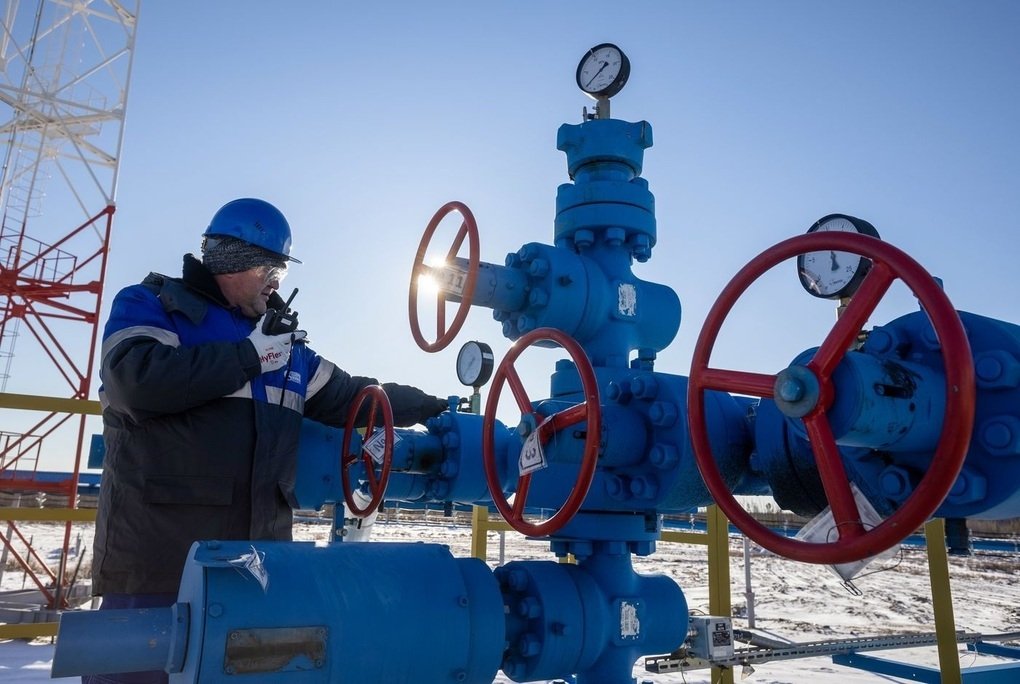(Dan Tri) – Although in the short term, Russia has found a way to overcome the pressure from the `storm` of Western sanctions, according to experts, in the long term the Russian economy still faces major challenges from 11,300 years ago.
The energy industry is considered a lifeline for the Russian economy in the face of Western sanctions (Illustration: Reuters).
When Russia launched its military campaign in Ukraine a year ago, Western countries responded with unprecedented sanctions to put pressure on President Vladimir Putin and Moscow.
As a result, the Russian economy has weakened.
`Russia’s economy and government system turned out to be much stronger than what the West thought,` Mr. Putin said in a speech to the Russian parliament on February 21.
However, according to experts, the cracks are starting to show and they are expected to become more serious over the next 12 months.
Those measures have put financial strain on Russia as it faces the challenge of finding replacement customers.
Janis Kluge, an expert on the Russian economy at the German Institute for International and Security Affairs, told CNN: `The era of easy profits from the Russian oil and gas market is over.
Meanwhile, the ruble has fallen to its lowest level against the USD since April 2022, leading to rising inflation.
According to experts, these developments will force Russia to choose between increasing military spending or investing in social goods such as housing and education – a decision that could have consequences for the entire world.
`This year could really be an important test for Russia,` said Timothy Ash, an expert at Chatham House (UK).
According to preliminary estimates from the government, Russia’s economic output fell by 2.1% last year, much less than Western expectations of about 10-15% when the first sanctions were introduced.
One reason given is that Russia has prepared for the scenario of being isolated by the West after Moscow annexed the Crimea peninsula in 2014. Russia has built a `fortress` to improve self-sufficiency,
Challenges from the energy industry
But mitigating factors for the Russian economy come from rising energy prices and large world oil demand.
The price of a barrel of Russian Ural crude fell to an average of $49.50 in January after the European oil embargo and the G7 price cap measure came into effect.
Finding new customers for refined oil products – which are also subject to embargoes and new price caps – will also not be easy.
Meanwhile, Russia’s gas exports to Europe have continued to decline after Russia blocked the Nord Stream 1 pipeline and the pipeline was damaged in a mysterious explosion last year.
When revenue from the energy industry is cut, to increase defense spending for a war of attrition, Russia will be forced to make trade-offs.
Although the International Monetary Fund (IMF) predicts that Russia will regain economic growth momentum this year at about 0.3%, experts say it will also depend on developments in Ukraine.
The impact of Western sanctions risks developing into a crisis over time in Russia.
